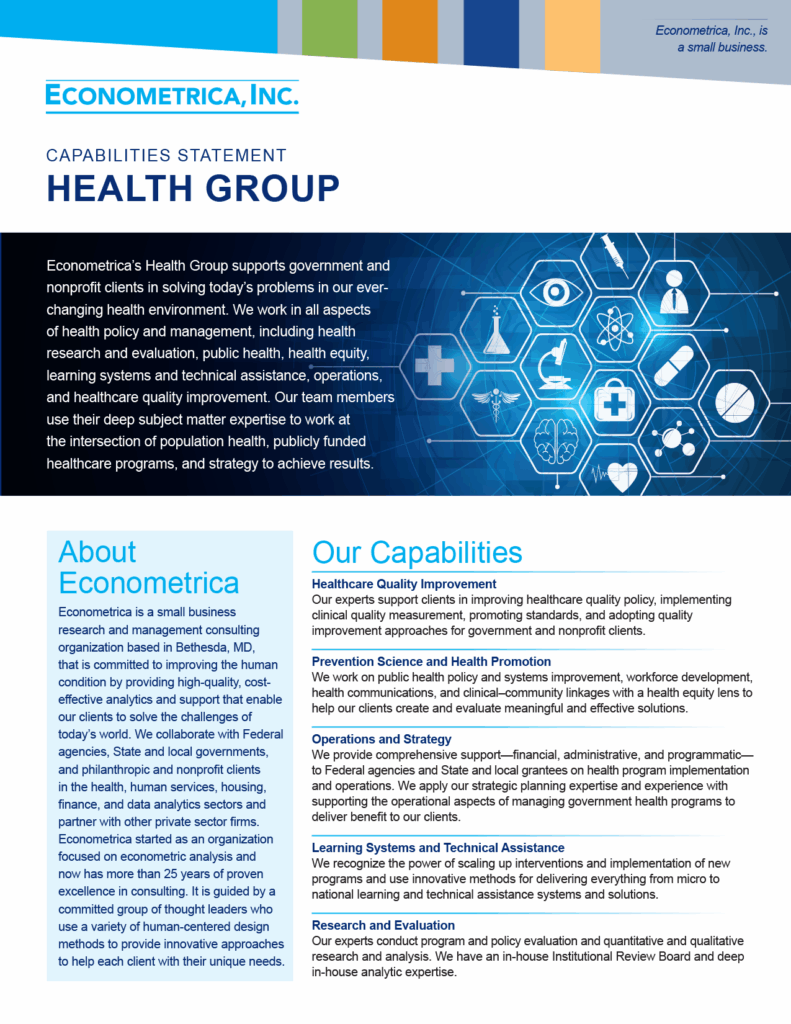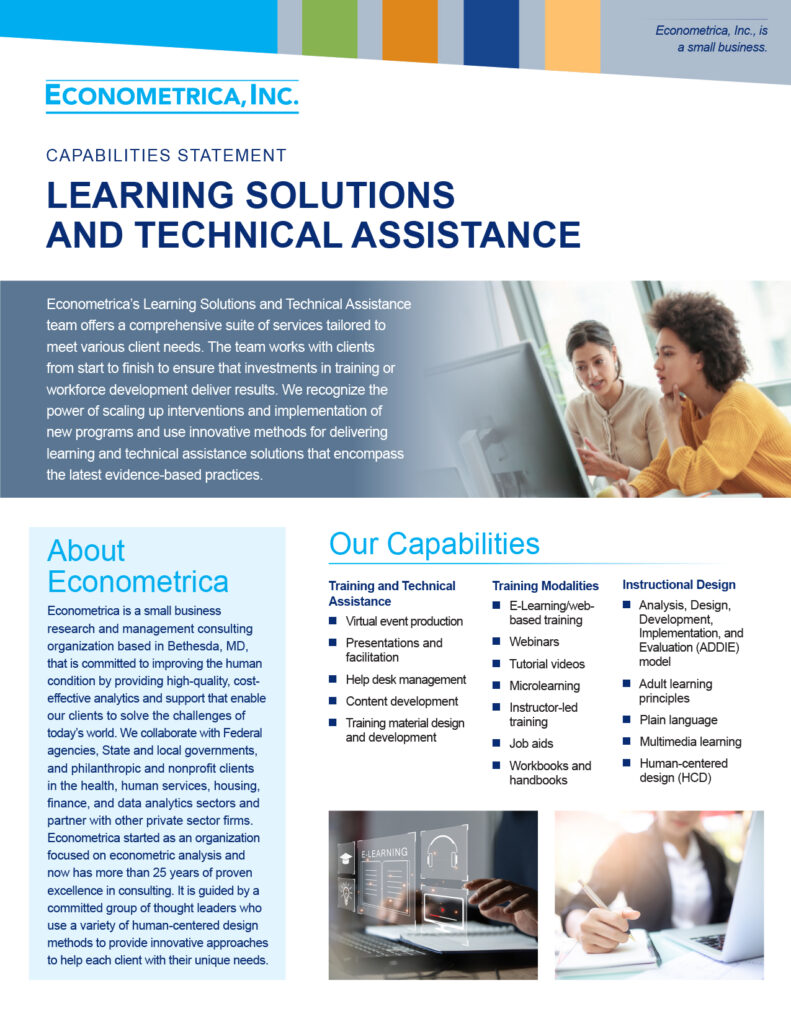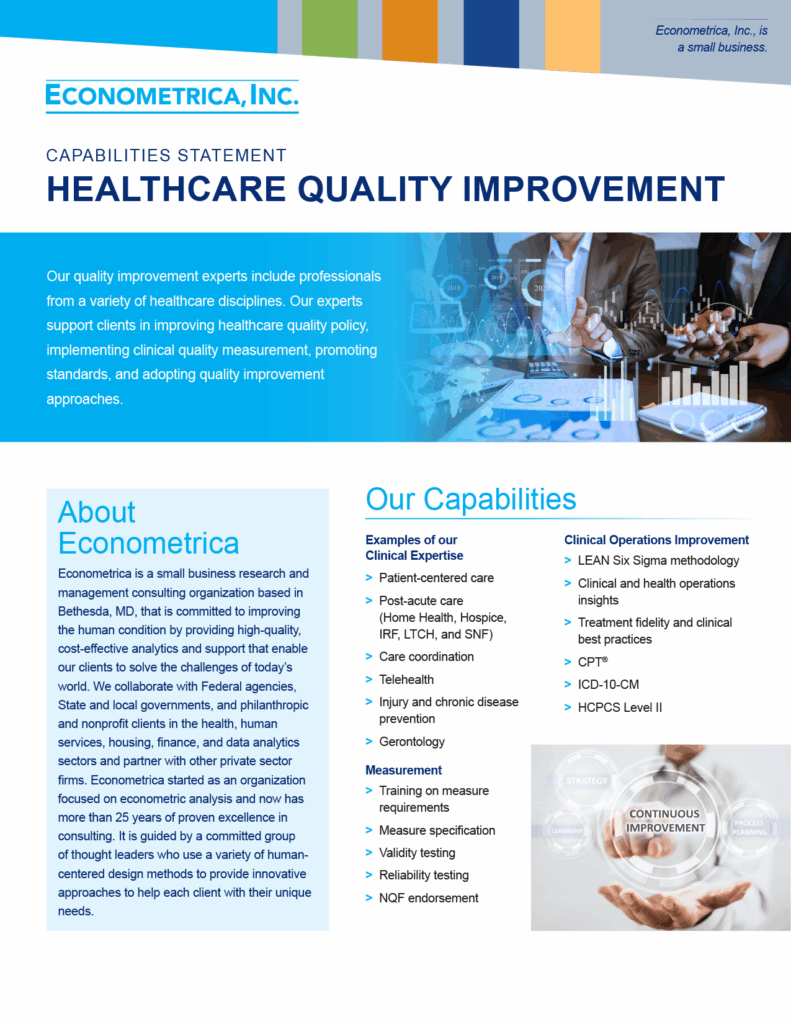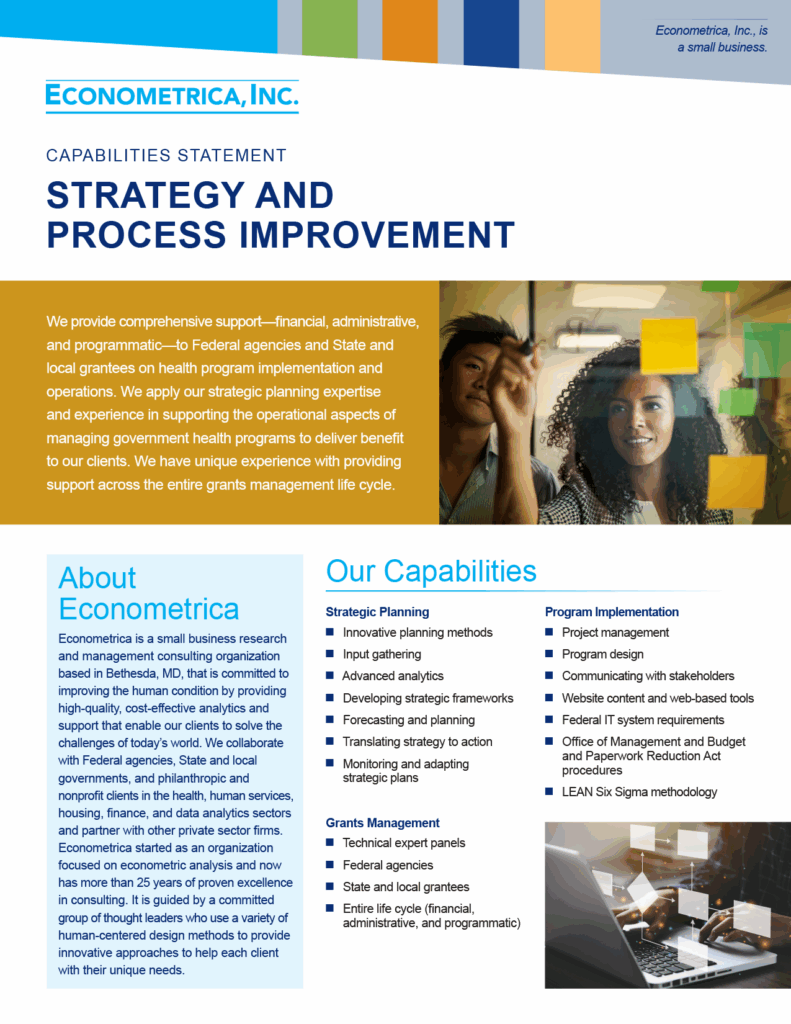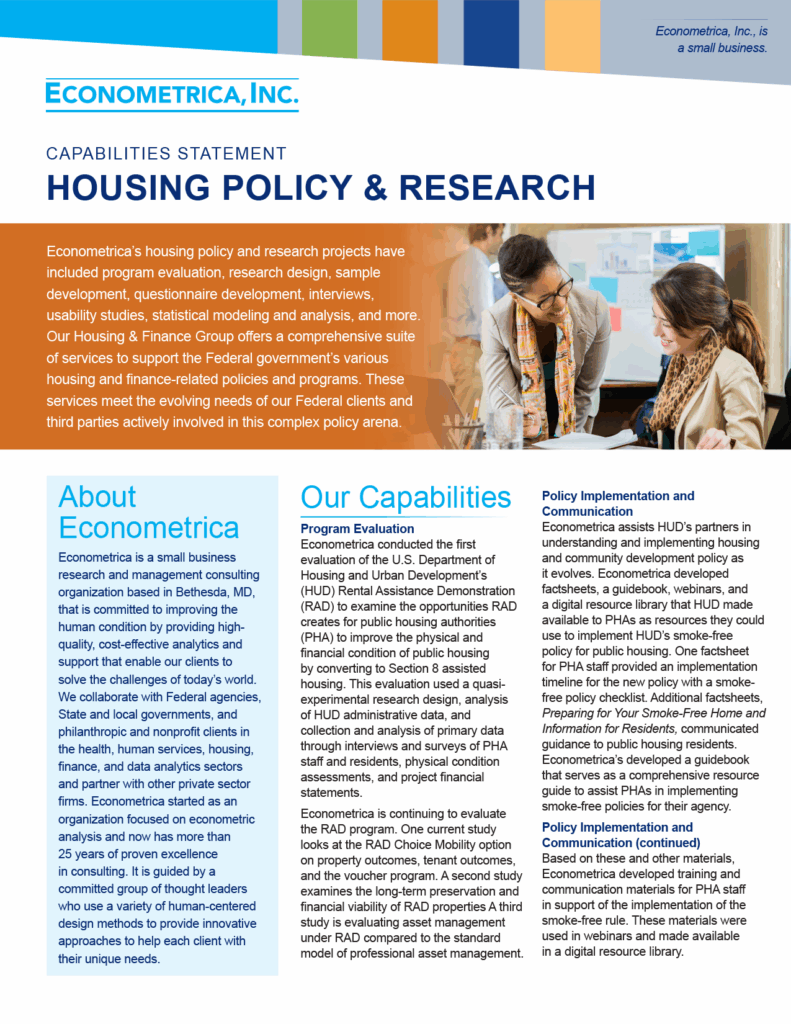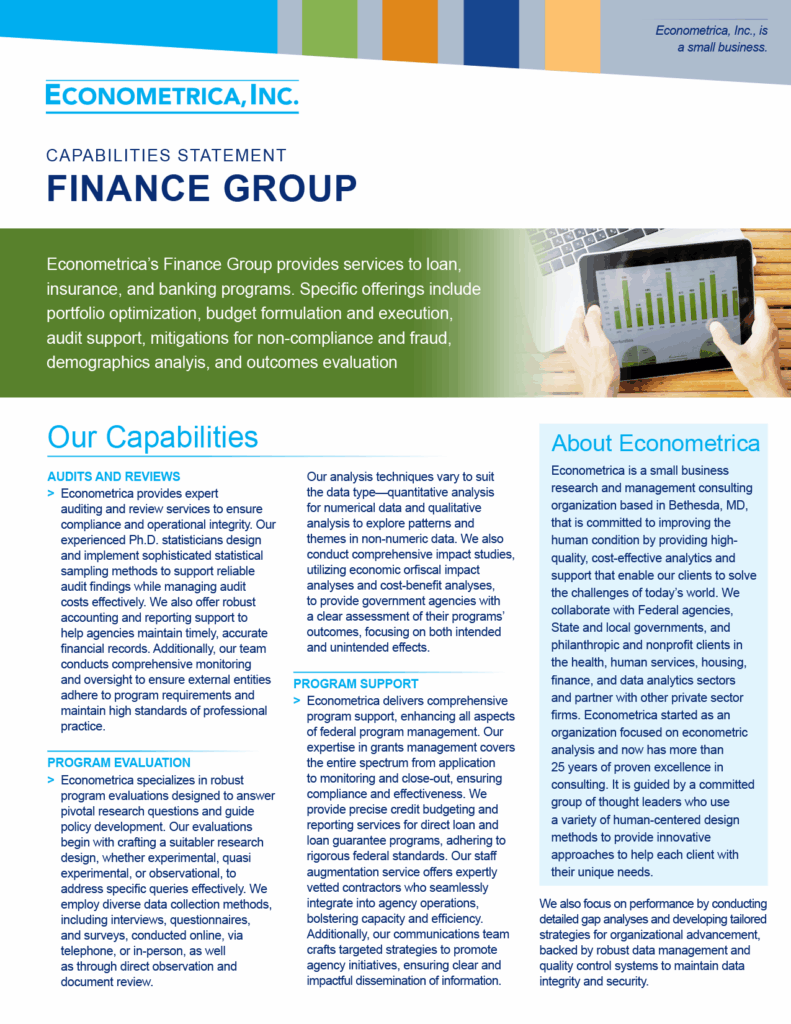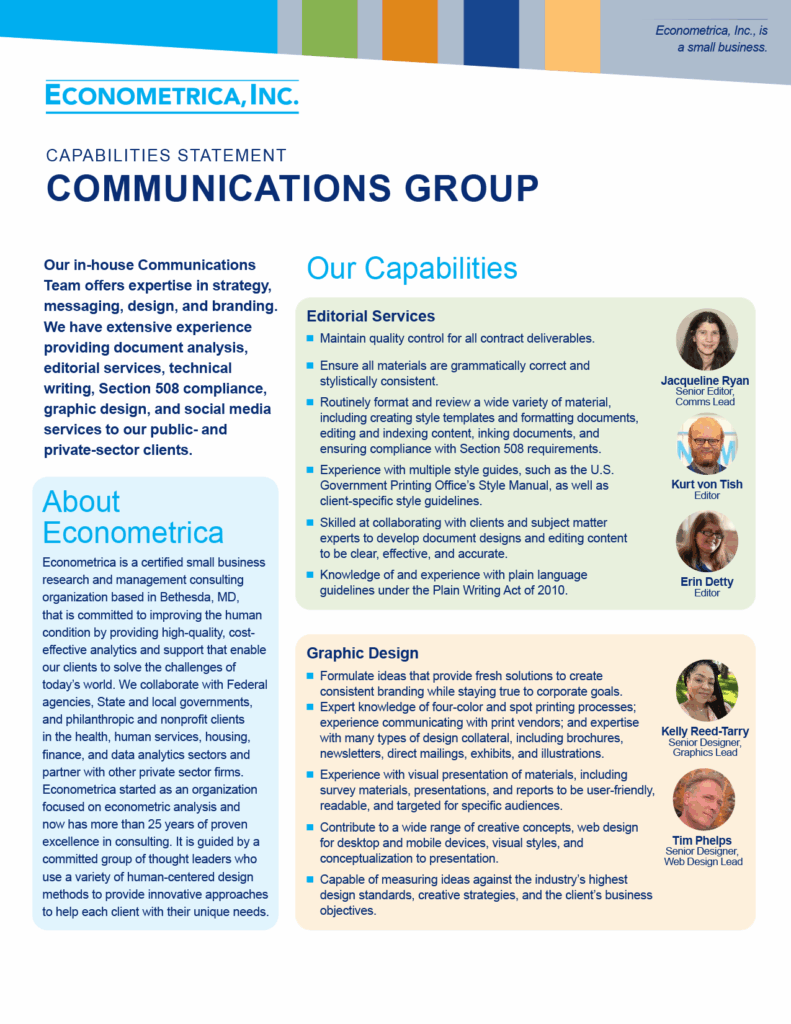Econometrica Supports HUD Toolkit Responding to Education Challenges From COVID-19
COVID-19 has impacted the nation in many ways, including children’s education. As schools get set to reopen this fall, the U.S. Department of Housing and Urban Development (HUD) has released a toolkit aimed at strengthening families and students living in HUD-assisted housing during the pandemic.
From August 2020 to March 2021, Econometrica supported HUD in a series of COVID-19 education peer exchanges. A key outcome from this series is Supporting Our Kids’ Education: Tools to Strengthen Resident Families & Students During COVID-19 & Beyond, a toolkit for public housing agencies and their community partners that responds to the educational challenges experienced by families and children during the pandemic.
The toolkit was developed by HUD’s Office of Choice Neighborhoods in partnership with grantees and expert consultants from Econometrica to provide case studies, ready-to-use family flyers, and a wealth of evidence-based resource links. Topics include:
- Addressing learning loss.
- Strengthening families’ ability to support their children’s learning.
- Developing high-quality out-of-school time programming and tutoring.
- Establishing learning hubs.
The toolkit highlights open source, research-based tools and resources as well as promising practice case studies that equip housing authorities and their partners to provide targeted educational services and strengthen the ability of families to support their children’s learning.
HUD focused on education because “COVID-19 has exacerbated the stark disparities between low-income housing residents and their higher-income peers.”
“With remote and hybrid learning, children living in public housing and U.S. Department of Housing and Urban Development (HUD)-assisted housing often face a variety of hurdles, from increased food insecurity and spotty internet service to challenges with student engagement and disruptions in specialized education supports.”
Work With Us, Work for Us
Econometrica, Inc., is a small business research and management consulting organization based in the greater Washington, DC, metropolitan area. We are committed to improving the human condition by providing high-quality, cost-effective analytics and support that enable our clients to solve the challenges of today’s world. We collaborate with Federal agencies, State and local governments, philanthropic and nonprofit clients, and private-sector partners in the public health, healthcare, data analytics, housing, and finance sectors.
To work with us on your next project, visit us online or email us at Info@EconometricaInc.com. To explore the benefits of working for us, visit our careers page. Follow us on LinkedIn, X, Facebook, and Instagram.
“With remote and hybrid learning, children living in public housing and U.S. Department of Housing and Urban Development (HUD)-assisted housing often face a variety of hurdles, from increased food insecurity and spotty internet service to challenges with student engagement and disruptions in specialized education supports.”

